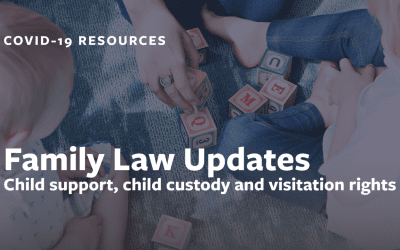FAMILY LAW AND DIVORCE
DEFINE YOUR FUTURE
Protect the relationships that matter most, through life’s most challenging transitions.
Facing family law matters can be some of the most painful and stressful legal experiences. Decisions made regarding family law cases not only affect the future of the parties involved but also the future of children and other friends and family involved.
We have helped clients facing family law matters including:
- Irreconcilable Differences Divorces
- Fault–Based Divorces
- Property Division & Equitable Distribution
- Alimony
- Prenuptial & Postnuptial Agreements
- Child Custody
- Child Support
- Modification Actions
- Visitation
- Contempt Actions
- Adoptions
- Termination of Parental Rights
- Paternity Actions
- Separate Maintenance Actions

Get a Simple No Fault Divorce
Flat Rate No-Fault Divorce: Finalize in 60 Days.
F.A.Q.
Family law matters in Mississippi are handled in chancery court. In Tennessee, the court may vary. An effective attorney will work hard to ensure your desired outcome, while minimizing the stress of the process as much as possible.
What is family law?
Family law covers all areas dealing with family matters in court. For example, this includes divorces, both contested and irreconcilable difference divorce (also known as “no-fault”); child custody issues; obtaining child support and defense of child support actions against a non-custodial parent; guardianships; and adoptions.
What are grounds for divorce in Mississippi?
If your spouse does not agree to an irreconcilable difference divorce, then you must file a contested divorce on one or more of the 12 following grounds. You must prove that your spouse:
- is naturally impotent
- committed adultery
- is sentenced to any state penitentiary (jail or prison) without pardon
- deserts you for one year
- is habitually drunk
- excessively and habitually uses opium, morphine, or other similar drugs
- habitually treats you in a cruel and inhuman way, including domestic abuse
- had a mental illness or intellectual disability at the time of your marriage and you did not know about it at the time
- was already married to someone else when you “married” each other
- was pregnant by someone else when you got married and you did not know about the pregnancy
- is related to you
- is incurably mentally ill
See the Causes for Divorce in Mississippi Code section 93-5-1
What are grounds for divorce in Tennessee?
A no fault divorce in Tennessee may be filed on the grounds of:
- Irreconcilable differences
- Living apart for two years (without children)
A fault divorce may be filed based upon the grounds your spouse:
- is naturally impotent and incapable of procreation
- committed adultery
- is sentenced to any state penitentiary (jail or prison)
- deserts you for one year
- refuses to move to Tennessee and has been apart from you in Tennessee for two years
- is habitually drunk
- abandons you and refuses to care for you while having the means to do so
- excessively and habitually uses opium, morphine, or other similar drugs
- habitually treats you in a cruel and inhuman way, including domestic abuse
- attempts to take your life
- was already married to someone else when you “married” each other
- was pregnant by someone else when you got married and you did not know about the pregnancy
How can you use domestic abuse as grounds for divorce?
Using domestic abuse as a grounds for a contested divorce can be based on your testimony that the abuser:
- caused or attempted to cause bodily injury
- caused or attempted to cause physical threat to put you in fear of immediate serious bodily harm; or
- engaged in a pattern of behavior against you of threats or intimidation, emotional or verbal abuse, forced isolation, sexual extortion or sexual abuse, or stalking or aggravated stalking
How long do divorce proceedings take?
An irreconcilable difference divorce takes 60 days upon filing of the joint complaint for divorce. A contested divorce has no timeframe and may take much longer depending on what the parties contest.
How is child custody determined?
Traditionally, courts automatically awarded custody to the mother — but today, that is no longer the case. Courts today weigh several factors in deciding who will have primary custody of children in a divorce. Learn more
What is joint custody?
Joint custody is where both parents share equally in custody of the children. This means each parent has the child an equal amount of time, and neither parent has more custody rights than the other.
The two types of custody rights are physical custody and legal custody. Physical custody is which parent the children reside with the majority of time. Legal custody is the right of one or both parents to have decision-making rights in regards to child’s health, education and welfare. Joint custody would mean equal parenting; the parents agree to co-parent together and share equally in custody of the child.
How is child support determined?
Child support is based on statutory law and is generally a percentage of the non-custodial parent’s income, based on the number of children the parties had together. The total amount reflects all sources of income, adjusted after standard deductions; from that total, the percentage due is calculated based on the number of children. In Mississippi, child support is paid until the children reach age 21. In Tennessee, child support is paid until the children reach age 18 or graduate high school.
Read the Child Support Award Guidelines in Mississippi Code section 43-19-101.
Do grandparents have visitation rights in Mississippi?
Grandparents may petition the court for visitation rights when one or both of the parents have had their parental rights terminated or one or both of the parents are deceased.
In a recent decision Smith v. Martin, handed down April 20, 2017, the Mississippi Supreme Court now requires the Court to determine if, in addition to the above provisions, granting reasonable grandparent visitations rights are in the best interest of the child.
That specific case also assigns the Court the determination of the frequency and amount. These findings by the Court make clear that grandparents do not have the same rights as the parents, even when those parental rights are removed.
Alternatively, a grandparent may petition for visitation when they fall outside of these guidelines and can show they had a viable relationship with the child and it is in the child’s best interest to have court ordered visitation.
The grandparent of a child who has both parents living may petition a chancery court for visitation, and the visitation may be granted, provided the court finds that the grandparent has established a viable relationship with the child, the parent or custodian of the child has unreasonably denied the grandparent visitation rights, and visitation would be in the best interests of the child.
Do grandparents have visitation rights in tennessee?
In Tennessee, grandparents may may have grounds for visitation with their grandchild if:
- the child lived with the grandparent for a year or more prior to living with the parent(s)
- the child was found to have had a significant relationship with the grandparent that has now been impacted by being separated by the parent(s)
- the child’s parents were never married or are divorced or separated
- the child’s parents are deceased
- one of the child’s parents have been missing for six months or longer
In addition, a grandparent must also prove that the child would be emotionally harmed by the termination of the relationship by showing:
- the relationship was so significant that severe emotional harm would be caused by separation
- the grandparent previously acted as the child’s caregiver and by severing the relationship, the child’s needs cannot be met
- the child could suffer harm without the relationship with the grandparent
HIRNG A FAMILY LAWYER
Families can face myriad struggles in navigating the legal system in Mississippi and Tennessee. Obtaining a family lawyer can be an effective method of avoiding further stress on a family involved in a legal matter.
ASK AMY
As seen in the Northeast Mississippi Daily Journal’s “Ask a Professional”
Coronavirus and Family Law
Rights to child custody, child support and visitation.
Premarital or Prenuptial Agreements
Q: Do I need a pre-nup before I get married? | Answers from Mississippi and Tennessee Lawyer
Modifying a Child Support Order
Q: How and when can I modify a child support order? | Answers from Attorney Amy Pietrowski
CLIENT TESTIMONIALS





